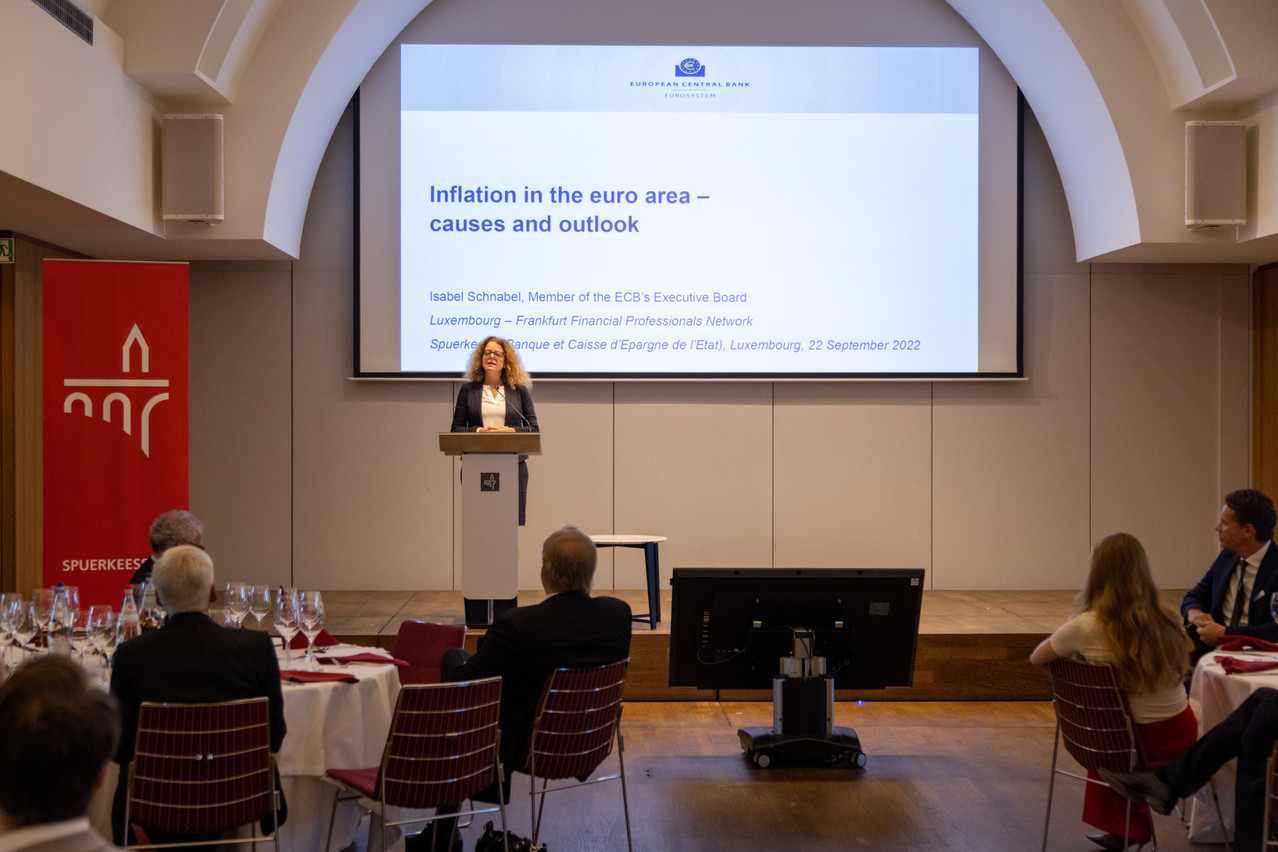The inflation rate reached 9.1% in the euro area in August and 6.8% in Luxembourg. The European Central Bank’s medium-term target of 2% for the eurozone now seems unrealistic. In Luxembourg, Statec has forecast a 6.6% inflation rate in 2022 and 2023.
In terms of GDP growth, the eurozone recorded +4.1% year-on-year growth in the second quarter. However, ING forecasters expect economic activity to shrink rapidly to -1.4% year-on-year in the second quarter of 2023. In Luxembourg, GDP contracted by 0.5% between the first and second quarters of this year, although it was still +1.6% year-on-year.
In the face of these less than encouraging figures, the government committed itself to releasing an of more than €1bn at the summit (between bosses, trade unions and the government) which concluded on the evening of 20 September. This represents a challenge for public finances. Finance minister (DP) seemed to be well aware of the stakes. In a speech on 13 September, ahead of the tripartite negotiations, she said: “.”
The day after the tripartite announcement, the Association of the Luxembourg Fund Industry’s managing director, , said that state financing of the promised relief by the will bring the country closer to the , currently 21.63%. This could affect Luxembourg’s triple A rating and increase the cost of financing the state.
... and the labour market
In addition, the two index tranches of pay and pension hikes that will take place in 2023 are the subject of several fears. It is “a significant cost to bear” both for companies and for the competitiveness of the market, stated Thommes. “We will have to see how the players, who are essentially international in origin, will feel about this cost increase. They traditionally have difficulty in grasping the automatic nature of indexation,” he warned, pointing out that “the wage bill has already increased by 5% in the first half of the year.”
During a visit to Luxembourg on 22 September, Isabel Schnabel, a member of the European Central Bank’s executive committee, of the role played by the price-wage spiral in the rise in the inflation rate. Wage increases that are too rapid could lead to price increases and thus generate additional inflation. Negotiated wage agreements can generate significant volatility in annual wage growth rates.
Schnabel also expressed alarm at the rise in labour shortages, which are hampering the ability of companies to produce added value and have been causing a slowdown in GDP. In August, labour shortages had already reached more than 35% in the euro area service industry. This echoes the various statements made by many representatives of the financial sector and CEOs of financial institutions in the country about the increasing difficulty in recruiting talent.
From inflation, to the contraction of the economy, to the opening up of public finances and its impact on the country’s triple A rating, the story seemed to be written from scratch. Yet job shortages and wage increases could open new chapters.
This article was published for the Paperjam + Delano Finance newsletter, the weekly source for financial news in Luxembourg. . Originally published in French by and translated for Delano.
